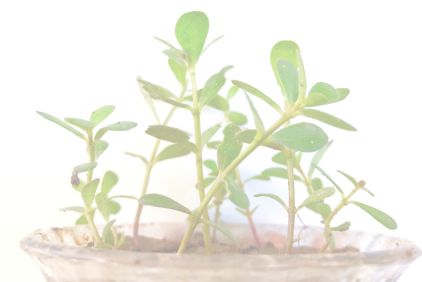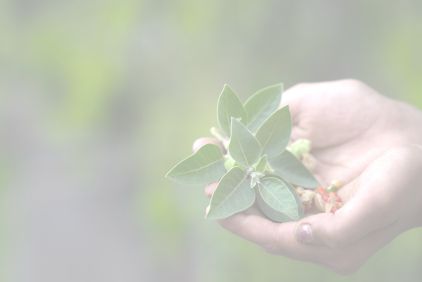Our memory contains all the information that leads us to act and be what we are in everyday life. The meaning of our existence often escapes us, and sometimes worries us, but memory is the only tangible thing that links us to our past and the unfolding of our whole life.
It enables us to retain information better, but also to more easily find the words we sometimes miss, or to clarify our ideas in a conversation.
Maintaining and stimulating memory

Today, preserving and optimizing memory is becoming a major concern, both for young people keen to maintain their intellectual faculties, and for older people seeking to prevent cognitive decline.
Memory, as a complex cognitive function, underpins our ability to learn, make informed decisions and interact meaningfully with our environment.
Our brain houses three kinds of "memory".
- The first is sensory. This is when one of our 5 senses immediately perceives what surrounds us, without our even realizing it. For example, a fragrance or flavor that reminds us of a particular event.
- Then there's short-term memory. This lasts less than 3 minutes. It's a telephone number memorized in the time it takes to write it down, or a piece of information given to us that we can use right away.
- Finally, long-term memory encodes and stores information to keep it ready for later retrieval. Sometimes a memory can resurface on a simple request, which means that the coding corresponds to the situation and that the memory has found its way back to the information without any problem. On the other hand, we can sometimes be sure that we know an element well, but have difficulty finding it again: the "storage" has been less judicious.
Normally, age should not be a factor in the "erasure" of memories (except in the case of illness), but it often happens that the brain is less solicited and gradually loses its faculties. The solution: stimulate memory. The more we learn, the more our memory associates, consolidates and reconstructs what has already been stored. In addition to psychological stimulation with a regular supply of new information, we need to think about nourishing the brain, and therefore the memory.
Ayurveda and memory
Ayurveda, the ancient system of traditional medicine originating in India, considers good memory to be an integral part of good health. According to the principles of Ayurveda, memory, or "Smriti", is intimately linked to an individual's overall health. Contrary to a reductionist view, Ayurveda considers memory to be a holistic component, influenced by physical, mental and spiritual factors.
From an Ayurvedic perspective, balancing the three doshas - Vata, Pitta and Kapha - is essential for maintaining a healthy memory. An imbalance in these vital energies can lead to disturbances in brain function, affecting the ability to remember and assimilate new information. Ayurvedic practitioners often recommend dietary adjustments, specific daily routines and breathing techniques to restore the balance of the doshas and promote optimal memory.
In addition to the physical aspects, Ayurveda recognizes the importance of emotional and mental balance in maintaining a robust memory. Meditative practices, yoga and other stress management techniques are encouraged to calm the mind, promote mental clarity and prevent memory disorders associated with chronic stress.
Ayurvedic plants and memory
Herbs and plants play a central role in the Ayurvedic approach to memory. Ayurvedic herbs such as Brahmi, Ashwagandha and Centella Asiatica are renowned for their ability to improve concentration and memory. These herbs are often incorporated into Ayurvedic preparations designed to nourish the brain and stimulate its cognitive functions.
Brahmi, to stimulate memory

Brahmi is reputed to improve memory thanks to its revitalizing effect on brain cells, and is a so-called nervine plant. It eliminates toxins and obstructions from the nervous system while having a nourishing effect. Brahmi is an important food for yogis, as it promotes meditation. In the Himalayas, they eat a small quantity of fresh leaves daily to regenerate the mind. In his book "Health through Ayurveda", David Frawley tells us that Brahmi helps awaken the chakra at the top of the skull and balances the right and left hemispheres of the brain. It calms the heart and thus prevents heart attacks.
Particularly useful in exam periods, Brahmi facilitates learning. This plant stimulates the memory, enabling it to store information, while defining coherent paths so that elements can be recalled when needed.
Centella asiatica, for enhanced reflection
Centella Asiatica is closely related to Brahmi (Bacopa monnieri), and is sometimes confused with it. It is less nervine than Brahmi, but is also reputed to boost memory and increase thinking ability - some say intelligence. It is also recognized for its tonic action on the immune system and adrenal glands.
This Ayurvedic plant boosts brain function. Above all, it has a dual action: on the one hand, it soothes stress when the situation calls for it, and on the other, it sharpens the senses. The memory is then on the lookout for the slightest piece of information and encodes it more easily.
Ashwagandha, to improve concentration

Ashwagandha is particularly renowned for its ability to improve memory and concentration. Ashwagandha's neuroprotective properties are attributed to its bioactive compounds, notably the withanolides, which demonstrate positive effects on brain health. This herb can help reduce oxidative stress, a factor often associated with cognitive decline. By regulating levels of the stress hormone cortisol, Ashwagandha promotes a more balanced mental state, creating an environment conducive to improved memory.
What's more, its anti-inflammatory properties can help protect brain cells from damage. By strengthening communication between nerve cells, Ashwagandha can also support concentration, offering holistic support for those seeking to optimize their cognitive abilities and maintain a sharp, robust memory.
Prevent memory loss
Although age is not normally a factor in memory loss, the body's cells do age. Many plants can help support and maintain memory. Antioxidants, such as amalaki or the polyphenols found in grapes, can also be taken into account, as they act effectively to limit cell ageing and thus preserve brain and memory vitality.
Ayurveda therefore offers a holistic approach to memory, incorporating practices designed to balance body, mind and soul. By adopting these principles, we can hope not only to maintain our memory, but also to promote overall mental health and lasting well-being.









